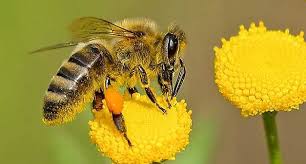Our Blog
Home / Blog
Pollinator Diversity In Fruit Crops And Enhancement Of Fruit Production Through Scientific Beekeeping

Introduction: In the world of agriculture, the delicate dance between plants and pollinators plays a pivotal role in the bounty of our harvests. Nowhere is this more evident than in fruit crops, where the diverse world of pollinators and the practice of scientific beekeeping intertwine to enhance fruit production. Let’s delve into the fascinating realm of pollinator diversity and the art and science of beekeeping.
The Pollinator’s Ballet: At the heart of every thriving fruit orchard is a diverse cast of pollinators – from bees and butterflies to birds and beetles. This biodiversity is not just a picturesque addition to the landscape; it’s a crucial factor in the success of fruit production. Different fruits rely on different pollinators, creating a delicate ecological balance that contributes to the overall health and productivity of the orchard.
The Bee’s Knees: Among the star performers in the pollination ballet, bees take center stage. Scientific beekeeping, characterized by the meticulous management of honeybee colonies, has become a cornerstone in optimizing fruit production. Beekeepers strategically place hives in orchards during flowering seasons, allowing the bees to work their magic in transferring pollen between flowers. This intentional collaboration between humans and bees has proven to be a game-changer in ensuring fruit set and quality.
Enhancing Fruit Production Through Scientific Beekeeping:
- Precision Pollination: Scientific beekeeping allows for precise control over pollination. By strategically placing hives and managing bee colonies, farmers can ensure a higher rate of successful pollination, leading to more abundant and uniform fruit yields.
- Boosting Fruit Quality: The quality of fruit is directly influenced by the effectiveness of pollination. Scientific beekeeping helps achieve optimal fruit development, resulting in larger, more uniform, and visually appealing fruits.
- Year-Round Management: Through careful hive management, scientific beekeeping provides a consistent and reliable pollination source throughout the fruiting season. This year-round approach contributes to sustained fruit production and economic stability for farmers.
Challenges and Solutions: While scientific beekeeping has proven to be highly effective, it is not without challenges. The declining bee populations due to factors like pesticide use and habitat loss pose threats to fruit production. Sustainable practices, such as organic farming and the creation of pollinator-friendly habitats, are crucial in addressing these challenges.
Conclusion: In the intricate tapestry of fruit production, pollinator diversity and scientific beekeeping emerge as key players. As we navigate the complexities of modern agriculture, understanding and preserving the delicate relationships between plants and pollinators will be paramount. By embracing sustainable practices and championing the role of bees in our orchards, we can ensure a sweet and fruitful future for generations to come.





